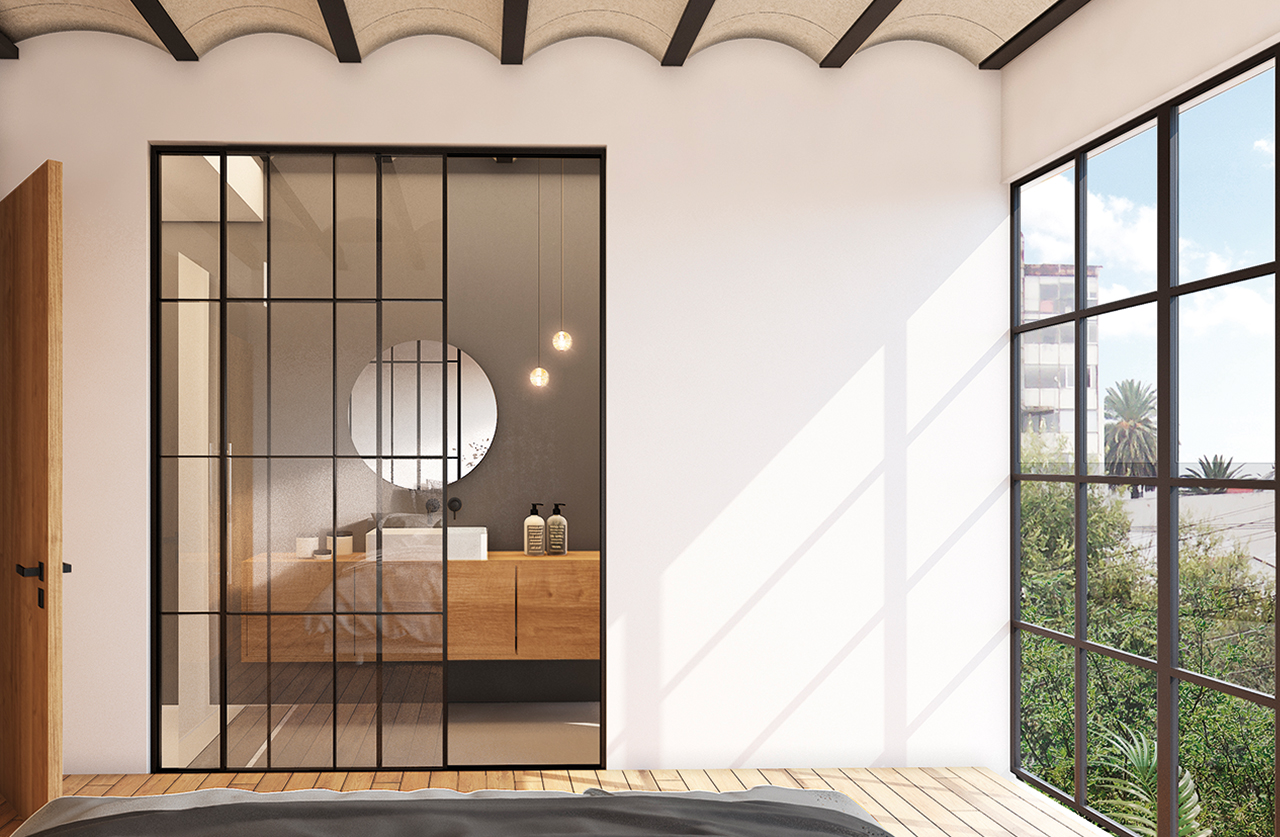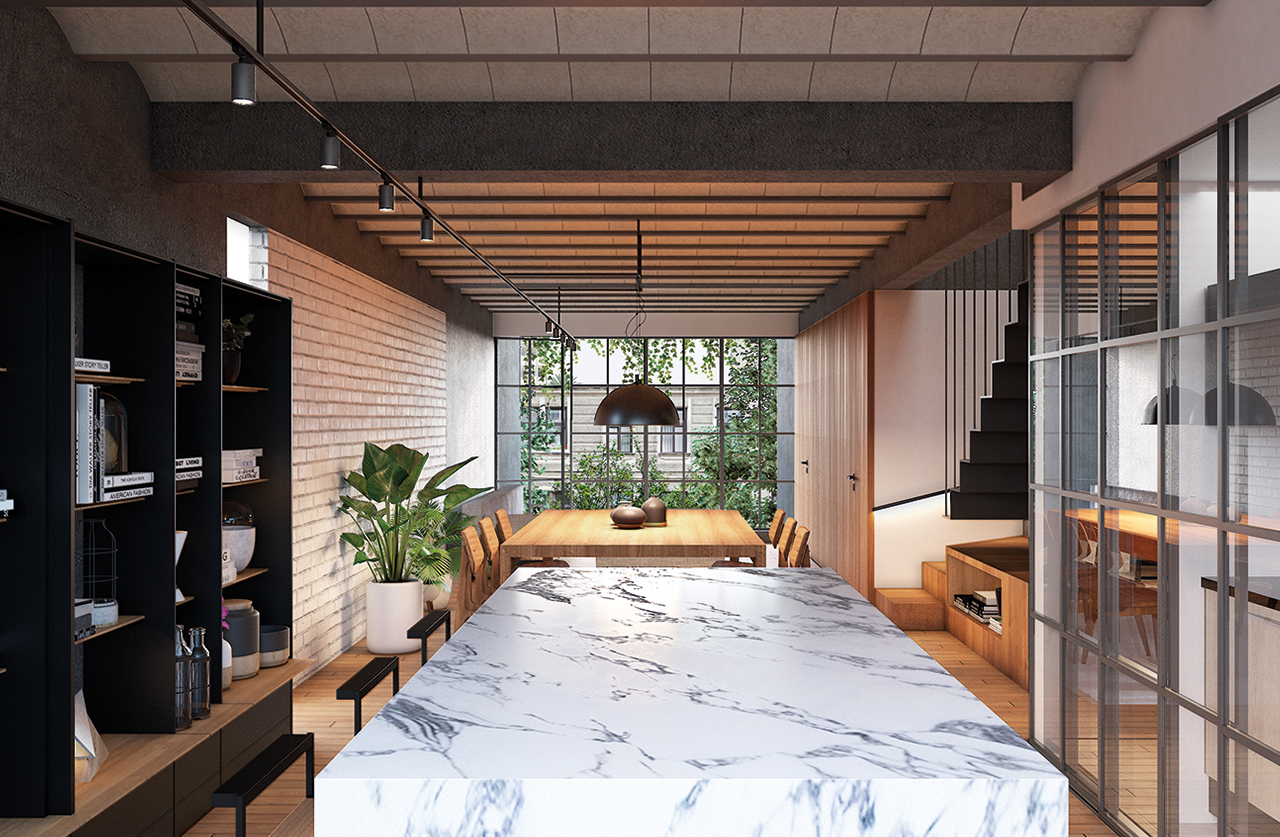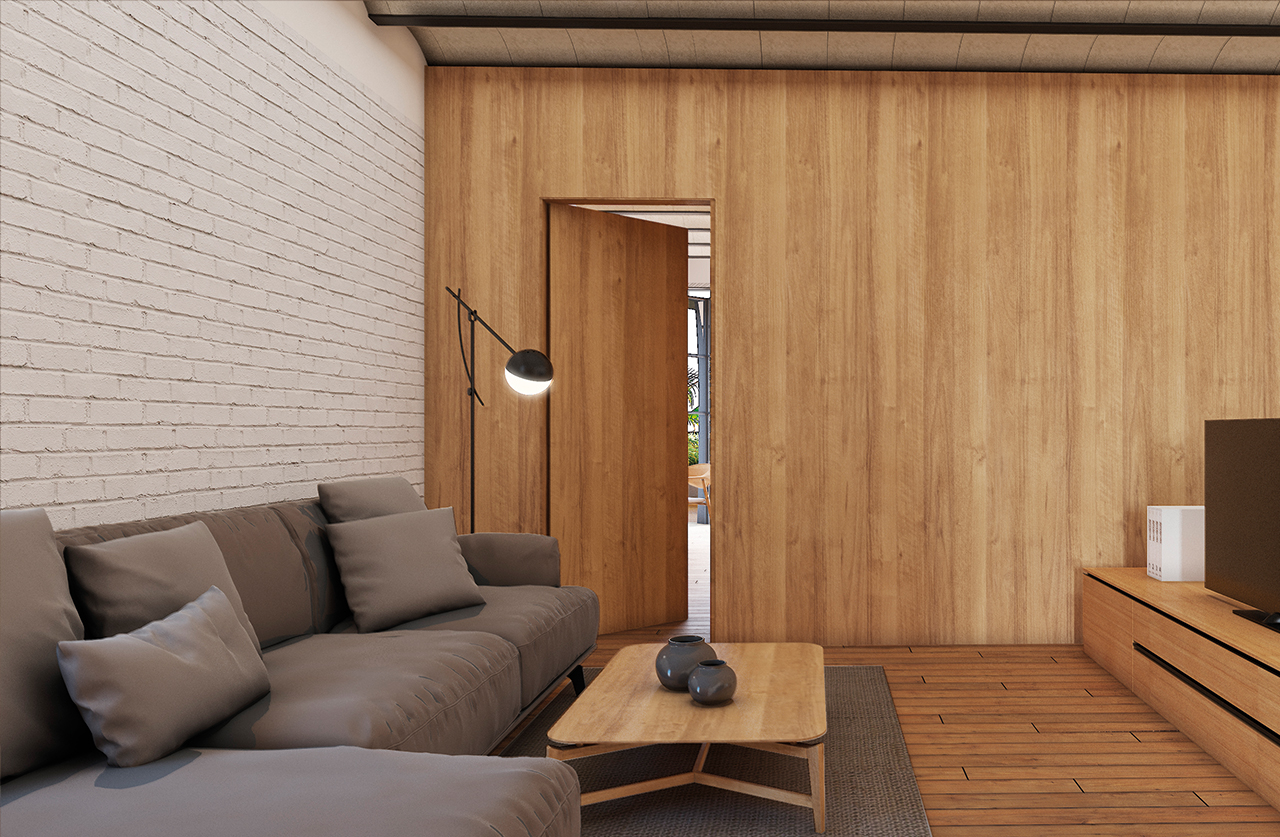Carlos B. Zetina
The multifamily building is developed on a land area of 188.25 m2 in the Tacubaya area, which is recognized as a site with historical value within the city. This represents an extraordinary look through time and with a vast plastic-architectural baggage.
The historical value within the zone.
The zone is of patrimonial conservation, in which a variety of protected houses with Art Deco styles representative of the 20's and 30's are found. Likewise, the essence of the neighborhood so characteristic of the area is rescued, so that, although this building is taller than its neighbors, the facades are respected in order to maintain the urban line of the compact city.
It is in this context in which we seek to integrate the current project with a series of elements that revalue these concepts while recognizing them.
Needs to be solved
The original construction consisted of a house that had been adapted to receive students from nearby universities in search of small rental housing close to their place of study, which is why it was decided to develop a project that would not only respond to these needs, but would also make the most of them.
Carlos B. Zetina is a development of apartments, in which each of these spaces was sought to have the flexibility and versatility necessary to be transformed into smaller units, to be rented on AirBnB type platforms.
It is a 5-level building, in which we sought to take advantage of the 6 dwellings allowed, in such a way that the dwellings that are developed on two levels would have the capacity to be designed in a way that, with a few simple adjustments, could be converted into two spaces that function as separate units.
Structuring criteria
Architecturally, we sought to design a building that would be very efficient. The building has a single wall in which the facilities are concentrated, so that it is a very easy to construct and modular building, it is for this same structuring criterion that there are no columns, making all the interior walls, exclusively partition walls, which opens the possibility for a wide variety of interior distributions.
Materiality
In terms of materiality, we sought to have a very transparent, honest and simple language, so we used apparent finishes, an example of this can be seen in the apparent concrete of the walls, the arched vaults made of terracotta, metallic ironwork, and exposed brick.




